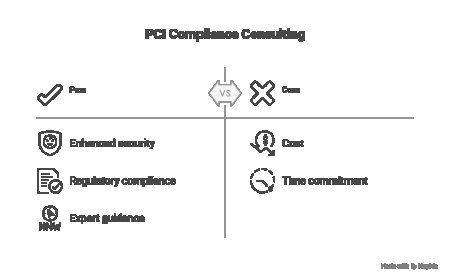Mastering the Journey: How Capella Assessments Empower Lifelong Learners
Capella, Assessment

Capella University has positioned itself as a leader in flexible, career-focused education. Central to its learning system is the use ofCapella Assessments, a modern and innovative approach to measuring student progress. These assessments go far beyond traditional exams or teststhey are practical, competency-based assignments designed to mirror real-life professional Capella Assessment. Whether youre studying business, healthcare, education, or technology, Capella Assessments are the cornerstone of proving what you know and how well you can apply it.
In this article, well explore the unique structure of Capella Assessments, why they matter, and how students can master them on their academic and professional journey.
A Real-World Approach to Academic Evaluation
Capella Assessments arent just about academic theory. They reflect the skills employers wantcritical thinking, problem-solving, communication, and decision-making. Instead of recalling facts for a timed quiz, Capella students are asked to apply their knowledge through detailed, often complex tasks. For instance:
-
A healthcare student might analyze a patient scenario and recommend evidence-based treatment.
-
A business student might draft a strategic plan for improving an organizations market share.
-
A psychology student could be tasked with evaluating ethical dilemmas and offering solutions.
Each assessment directly supports one or more course competenciesclearly defined learning outcomes that must be demonstrated through applied work.
The Core Components of Capella Assessments
While assessments differ across programs, they generally follow a consistent format. Understanding these elements can help students approach each task with clarity and confidence.
1. Assessment Instructions
These describe the scenario and outline the specific deliverables. Often, the instructions simulate workplace nurs fpx 4065 assessment 1, making the task both relevant and engaging.
2. Competency Alignment
Each assignment maps directly to one or more competencies. These competencies define the specific skills or knowledge areas being measured, such as communication, leadership, ethics, or data analysis.
3. Scoring Guide (Rubric)
The rubric is a detailed evaluation tool that shows how your work will be assessed. It breaks performance into levelstypically Non-performance, Basic, Proficient, and Distinguishedand clearly defines what each level looks like for every criterion.
4. Formatting and Citation Guidelines
Capella often requires APA formatting, which means citations, references, and presentation must meet professional and academic standards.
The Philosophy Behind Competency-Based Assessments
Capellas assessments are grounded in a competency-based education (CBE) philosophy. This means your ability to apply knowledge is valued more than the amount of time spent in a course. Heres why this matters:
-
Focus on Outcomes: You advance by demonstrating mastery, not by simply attending lectures.
-
Flexible Learning: Especially in the FlexPath format, you can progress as quickly as you prove competency, making it ideal for self-directed learners.
-
Career Readiness: The assessments prepare students for the challenges of the workplace, making the transition from classroom to career more seamless.
This approach promotes deeper understanding, greater student agency, and real-world skill development.
Strategies for Success in Capella Assessments
1. Let the Rubric Be Your Guide
Review the scoring guide before starting your assessment. Use it to structure your work and make sure every requirement is met. Aim for the Proficient or Distinguished level in each category.
2. Work in Phases
Break the task into smaller steps:
-
Understand the scenario
-
Plan your approach
-
Conduct research
-
Draft the assessment
-
Review and edit
-
Submit, then revise if needed
Avoid trying to complete the entire nurs fpx 4035 assessment 5 in one sittingtime for reflection and editing is key to quality.
3. Leverage Capella Resources
Take advantage of support systems:
-
The Writing Center: Help with structure, grammar, and APA formatting.
-
Academic Coaches and Tutors: Guidance in content understanding or time management.
-
The Capella Library: A massive collection of academic journals and citation tools.
4. Embrace Feedback
Feedback is a core part of the assessment process. If your evaluator provides suggestions, use them to improve and resubmit if needed. This growth-focused model allows for continuous improvementa vital skill in any profession.
5. Practice Academic Integrity
Always produce original work and cite your sources properly. Academic honesty isnt just about avoiding plagiarismits about building trust and professionalism.
The Role of Faculty in the Assessment Process
Capellas faculty evaluators play a dual role as both assessors and mentors. They are trained to use rubrics objectively, offering constructive feedback based on clear performance criteria. Their goal is not just to assign a grade, but to help you reach mastery.
If a submission doesnt meet the standard, evaluators provide actionable insights so you can revise and grow. This iterative process helps build not only academic skills, but also resilience and critical self-reflection.
Conclusion
Capella Assessments are more than just academic requirementstheyre opportunities to grow, prove yourself, and prepare for life beyond graduation. Designed with real-world challenges in mind, these assessments teach students how to think critically, communicate nurs fpx 4055 assessment 4, and apply their knowledge in meaningful ways.
By understanding the structure of assessments, leveraging available resources, and embracing feedback, Capella students can master their coursework with confidence and pride. In the end, every assessment you complete isnt just a step toward a degreeits a stride toward a capable, confident, and career-ready future.
More Articles:
Capella Assessments: Building Competence for the Modern Offices








































